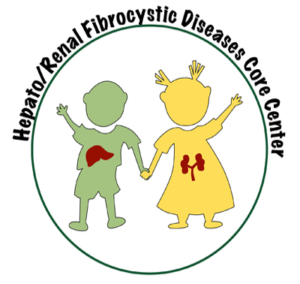ARPKD affects both kidneys and the liver. Affected children may have significant kidney involvement at the time of birth. In-utero, urine production is a critical factor in maintaining normal amniotic fluid levels. When amniotic fluid levels are very low, lung development can be impaired. In some newborns with low levels of amniotic fluid, impaired lung development can result in serious breathing difficulties that require ventilation upon birth and sometimes can cause death.
Children with ARPKD often produce very large volumes of urine and must urinate much more frequently than children with normal kidneys. Given the kidney abnormality, urine production in ARPKD children does not slow down at night or even when liquid intake is limited.
High blood pressure is very common in children with ARPKD, and current information indicates that untreated high blood pressure can lead to kidney failure more quickly than if the blood pressure is kept within the normal range with medications.
Children with ARPKD also have the liver abnormality called congenital hepatic fibrosis (CHF) that may lead eventually to enlargement of the liver and spleen. In the liver, the abnormality can impede the return of blood from the intestine to the liver. This condition, called portal hypertension, can lead to distention and increased pressure in the veins around the esophagus, the stomach, and the intestine. This can rupture, leading to possibly life-threatening gastro-intestinal bleeding. In addition, portal hypertension can cause spleen enlargement and hypersplenism resulting in low red blood cell, white blood cell and platelet counts.











